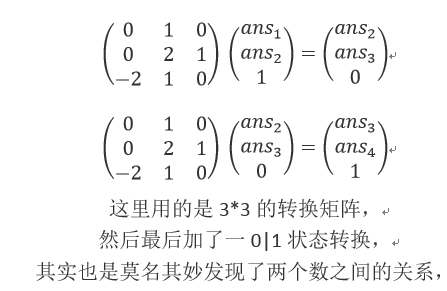- agoda获取酒店数据
风云路上想改名
笔记pythonagoda爬取报错重启
最近改了改代码,正好解决了一些报错问题,更新出来。个别处会加蜜数据库以及线程控制fromDBUtils.PooledDBimportPooledDBimportrequestsimportdemjsonimporttimeimportrandomimportjsonimportpymysqlimportdatetimeimportthreadingb={"user":"root","passwd"
- TCP 握手数据包分析
inquisiter
tcp/ip网络linux
一、客户端数据分析:spu@spu:~/code/pcap$tcpdump-rclient_all.pcap-Xreadingfromfileclient_all.pcap,link-typeEN10MB(Ethernet)17:58:56.346748IP192.168.1.178.55814>192.168.1.117.socks:Flags[S],seq2615205588,win64240
- 文件包含lfi.php使用
三和三千万
网络安全安全
使用这个脚本的前提是有文件包含点,也可以访问到phpinfo页面#!/usr/bin/pythonimportsysimportthreadingimportsocketdefsetup(host,port):TAG="SecurityTest"PAYLOAD="""%s\r')?>\r"""%TAGREQ1_DATA="""-----------------------------7dbff1d
- 【Python自动化办公脚本】Excel文件批量转PDF文件
一只小哪吒AE
python
importosimportwin32com.clientimporttkinterastkfromtkinterimportttkfromttkbootstrapimportStylefromtkinterimportfiledialog,messageboxfromthreadingimportThreadclassExcelToPDFConverter:def__init__(self,ma
- C# 中对 Task 中的异常进行捕获
手搓人生
C#编程c#
以下是在C#中对Task中的异常进行捕获的几种常见方法:方法一:使用try-catch语句你可以使用try-catch语句来捕获Task中的异常,尤其是当你使用await关键字等待任务完成时。usingSystem;usingSystem.Threading.Tasks;classProgram{staticasyncTaskMain(){try{awaitTask.Run(()=>{//模拟异常
- 易飞ERP 查询报表打印凭证报错:Error reading Quick Report.PaperLength:Invalid pointer operation
S3软件
易飞ERPwindows
处理办法:查询报表打印凭证报错:ErrorreadingQuickReport.PaperLength:Invalidpointeroperation-S3软件此问题,主要是由于计算机的默认打印设置错误导致,一定要将运行易飞的计算机设置一台状态正常的打印机!以上处理方法做完即可解决问题!最上面是使用中最常见的方...https://blog.s3.sh.cn/thread-64-1-2.html
- c#模拟鼠标点击左键
王焜棟琦
C#c#
c#模拟鼠标点击左键,这里调用的是windows系统函数,usingSystem;usingSystem.Collections.Generic;usingSystem.Linq;usingSystem.Runtime.InteropServices;usingSystem.Text;usingSystem.Threading.Tasks;namespaceWindowsFormsAppHalco
- 使用DeepSeek建立一个智能聊天机器人0.1
yehaiwz
python机器人开发语言
我对代码进行进一步的完善,增加更多的节点连接及功能运用,并确保配置文件config.json的内容更加丰富和详细。以下是完善后的代码和config.json文件内容。完善后的代码importtkinterastkfromtkinterimportscrolledtext,filedialog,messageboximportrequestsimportosimportthreadingimport
- 用python写一个聊天室程序
酷爱码
Pythonpython服务器网络
下面是一个简单的基于Socket的Python聊天室程序示例,包括服务器端和客户端:服务器端代码:importsocketimportthreadingdefhandle_client(client,address):print(f"Newconnectionfrom{address}")whileTrue:msg=client.recv(1024).decode()ifnotmsg:breakp
- vue 启动项目报错Cannot read properties of undefined (reading ‘parseComponent‘)
知道的越多越难受
vuevue.jsjavascript前端
如果出现如下报错大概率是因为install时中途出现异常导致vue-template-compiler依赖没有正常安装导致的,重新安装即可SyntaxError:TypeError:Cannotreadpropertiesofundefined(reading'parseComponent')Youmayusespecialcommentstodisablesomewarnings.Use//es
- 文档比对工具/Word查重(基于python的本地word文档查重)二
筠贝
windowspython开发语言
本地文档查重一本地文档查重二代码思路使用第本地文档查重一的基本思路。根据自己的需求去自定义一些函数1.自定义一个读取对比word文件名的函数。2.自定义一个根据文件名读取word内容函数,并将内容转换为list.3.自定义对比的方法。4.主函数去调用上面的方法,并采用多进程方式。多进程/多线程本文章在测试下述代码时,也曾经采用多线程(threading.Thread)方式,但感觉未展现多线程的优势
- 【Python】解决PyTorch报错:PytorchStreamReader failed reading zip archive: failed finding central的解决方案
I'mAlex
pythonpytorch开发语言
在使用PyTorch时,遇到“PytorchStreamReaderfailedreadingziparchive:failedfindingcentral”错误通常是由于损坏的模型文件或不兼容的文件版本导致的。这种问题在加载模型或数据时比较常见。以下是一些排查和解决该问题的步骤。博主简介:现任阿里巴巴嵌入式技术专家,15年工作经验,深耕嵌入式+人工智能领域,精通嵌入式领域开发、技术管理、简历招聘
- linux运维架构部署,Linux运维-day48/49-综合架构-nginx的location规则和LNMP的部署
在下子文
linux运维架构部署
一、nginx状态模块及权限控制补充1.2nginx状态模块通过监控软件查看nginx的状态[root@web01~]#curlstatus.oldboy.comActiveconnections:1serveracceptshandledrequests232323Reading:0Writing:1Waiting:0\\------------------分别代表的含义------------
- 【20天快速掌握Python】day17-线程
菜鸟进阶站
Python编程后端开发python前端java
1.线程安全问题1.1线程访问全局变量importthreadingg_num=0deftest(n):globalg_numforxinrange(n):g_num+=xg_num-=xprint(g_num)if__name__=='__main__':t1=threading.Thread(target=test,args=(10,))t2=threading.Thread(target=t
- MySQL参数max_connect_errors分析
leejunokokok
mysql
查询错误日志,频繁报Gotanerrorreadingcommunicationpackets查找问题:①查询max_allowed_packet包的大小mysql>showvariableslike'%max_allowed_packet%';+--------------------------+------------+|Variable_name|Value|+--------------
- 【python】并发编程——多线程
南隅。
python开发语言
文章目录1一些概念1.1线程概念1.2线程模型1.2.1多对一1.2.2一对一1.2.3多对多1.2.4双层模型2ThreadinPython2.1threading2.1.1示例2.1.2关于线程返回值设置保存运行结果的全局变量重写Thread类2.2concurrent.future线程池2.2.1例程2.2.2死锁的情况相互等待worker不够用3参考1一些概念1.1线程概念线程是程序的执行
- Python----PyQt开发(PyQt高级:文件浏览器)
蹦蹦跳跳真可爱589
PythonPyQtpyqtpython
一、效果展示二、界面设计该界面通过QtDesigner设计#-*-coding:utf-8-*-#Formimplementationgeneratedfromreadinguifile'file_web.ui'##Createdby:PyQt5UIcodegenerator5.15.9##WARNING:Anymanualchangesmadetothisfilewillbelostwhenpy
- 简介 AMD zen 系列 cpu zen zen+ zen2 zen3 zen4 特性
Eloudy
CPUZEN
zen系列cpu,几代之间,指令集又什么区别?AMD的Zen系列CPU在不同代之间引入了多种指令集扩展和架构改进。以下是各代之间的主要指令集和功能差异:1.Zen(第一代)指令集:支持x86-64指令集,包括SSE、SSE2、SSE3、SSE4.1、SSE4.2、AVX和AVX2。特点:引入了新的微架构设计,显著提升了多线程性能。支持SMT(SimultaneousMultithreading),
- Windows平台上多线程编程
AI+程序员在路上
QT&C++实战系列windowsc语言c++开发语言
一.多线程概述多线程(multithreading)是一种并发编程的方式,它允许程序同时执行多个任务。1.功能并发执行:多线程技术使得一个程序能够同时运行多个任务,这些任务在逻辑上相互独立,但在执行过程中可能共享某些资源。资源共享:在多线程程序中,多个线程可以访问共享的内存空间,这些共享资源包括变量、数据结构等。同步与互斥:为了保证多线程程序的正确性和效率,需要实现线程之间的同步和互斥,以避免数据
- Python命名规范
Andy_2259
Pythonpython开发语言后端
原文地址1、包名:全部小写字母,中间可以由点分隔开,不推荐使用下划线。作为命名空间,包名应该具有唯一性,推荐采用公司或者组织域名的倒置,如com.apple.quicktime.v2。2、模块名:全部小写字母,如果是多个单词构成,可以用下划线隔开,如dummy_threading。3、类名:总是使用首字母大写单词串。如MyClass。内部类可以使用额外的前导下划线。类总是使用驼峰格式命名,即所有单
- Python 多线程 vs 多进程:到底该用哪个?
高山仰星
python开发语言
1.引言在Python开发中,多线程(multithreading)和多进程(multiprocessing)是并发编程的两种主要方式。许多开发者在面对计算密集型或I/O密集型任务时,常常不清楚该选择哪种方式。本篇文章将深入解析Python的多线程和多进程,分析其区别、适用场景,并提供代码示例。2.线程与进程的基本概念什么是线程?线程是进程中的最小执行单元,同一进程内的多个线程共享进程的内存空间。
- Python连点器 PyQt6+pynput
Ryvict
笔记
鼠标宏按键不够、容易误触,因此写了这个电脑连点器通过Python多线程+pynput实现连点操作核心部分代码:importthreadingimporttimefrompynput.keyboardimportListener,ControllerasKeyboardController,Keyfrompynput.mouseimportButton,ControllerasMouseContro
- Python自动化脚本实现QQ大乐斗游戏任务自动完成
智算菩萨
python开发语言前端前端框架
引言Q宠大乐斗是一款经典的社交网络游戏,深受广大玩家喜爱。但是随着游戏的深入,每日需要完成的任务越来越多,占用了玩家大量的时间。本文介绍了一个基于Python和Selenium的自动化脚本,可以帮助玩家自动完成大乐斗中的日常任务,极大地节省时间。脚本概述这个脚本使用Python编写,主要基于以下几个库:Selenium:用于自动化控制浏览器tkinter:用于创建图形用户界面threading:实
- c#中Thread.Join()方法的经典示例
飞由于度
c#开发语言笔记
在C#中,Thread.Join是一个非常有用的方法,它可以让主线程(调用线程)等待子线程(被调用线程)执行完毕后再继续执行。1、经典示例1usingSystem;usingSystem.Threading;publicclassExample{staticThreadthread1,thread2;publicstaticvoidMain(){thread1=newThread(ThreadPr
- 8.flask+websocket
卷土重来…
flaskflaskwebsocketpython
http是短连接,无状态的。websocket是长连接,有状态的。flask中使用websocketfromflaskimportFlask,requestimportasyncioimportjsonimporttimeimportwebsocketsfromthreadingimportThreadfromurllib.parseimporturlparse,parse_qsfromfunct
- UdpServer
Risehuxyc
C#c#
Udp服务端:usingSystem;usingSystem.Collections.Generic;usingSystem.Linq;usingSystem.Net.Sockets;usingSystem.Net;usingSystem.Text;usingSystem.Threading;usingSystem.Threading.Tasks;usingSystem.Diagnostics;u
- ClickHouse Kafka 引擎教程
2401_86984695
clickhousekafkalinq
你将看到如下所示的输出,其中显示了其分区的主题和当前状态。Topic:readingsPartitionCount:6ReplicationFactor:2Configs:Topic:readingsPartition:0Leader:0Replicas:0,2Isr:0,2Topic:readingsPartition:1Leader:2Replicas:2,1Isr:2,1Topic:read
- 通过cad中块获取块的略缩图——cad c# 二次开发
yngsqq
CADC#二次开发c#开发语言
通过cad中块获取块的略缩图,并保存桌面,效果如下:附部分代码:usingAutodesk.AutoCAD.Internal;usingSystem.Drawing;usingSystem.Drawing.Imaging;usingSystem.Threading;usingColor=Autodesk.AutoCAD.Colors.Color;namespaceIfoxDemo{publicst
- 用Python和Audius API实现简单歌曲下载器
学习&实践爱好者
python开发语言
用Python和AudiusAPI实现简单歌曲下载器本程序使用Python的标准库模块(Python内置,无需额外安装)模块/导入语句功能说明特殊说明importos操作系统接口(文件路径、目录操作等)全平台通用importtime时间处理相关功能包含睡眠、时间戳转换等功能fromthreadingimportThread多线程支持建议改用threading模块的更现代APIfromqueueim
- Python 中如何使用 threading 模块实现线程编程?
莫比乌斯之梦
技术#Python技术#编程基础python开发语言编程基础多线程
在多任务编程中,线程是一种非常有效的手段,可以让多个任务同时执行,从而提高程序的执行效率。Python提供了threading模块,用于创建和管理线程。在这文中,将深入探讨如何使用threading模块来创建线程,并介绍如何实现线程同步,以确保多线程程序的正确性和效率。一、Python中的线程基本概念线程是程序中的独立执行单元,可以并发执行代码。Python中的线程由threading模块提供支持
- 继之前的线程循环加到窗口中运行
3213213333332132
javathreadJFrameJPanel
之前写了有关java线程的循环执行和结束,因为想制作成exe文件,想把执行的效果加到窗口上,所以就结合了JFrame和JPanel写了这个程序,这里直接贴出代码,在窗口上运行的效果下面有附图。
package thread;
import java.awt.Graphics;
import java.text.SimpleDateFormat;
import java.util
- linux 常用命令
BlueSkator
linux命令
1.grep
相信这个命令可以说是大家最常用的命令之一了。尤其是查询生产环境的日志,这个命令绝对是必不可少的。
但之前总是习惯于使用 (grep -n 关键字 文件名 )查出关键字以及该关键字所在的行数,然后再用 (sed -n '100,200p' 文件名),去查出该关键字之后的日志内容。
但其实还有更简便的办法,就是用(grep -B n、-A n、-C n 关键
- php heredoc原文档和nowdoc语法
dcj3sjt126com
PHPheredocnowdoc
<!doctype html>
<html lang="en">
<head>
<meta charset="utf-8">
<title>Current To-Do List</title>
</head>
<body>
<?
- overflow的属性
周华华
JavaScript
<!DOCTYPE html PUBLIC "-//W3C//DTD XHTML 1.0 Transitional//EN" "http://www.w3.org/TR/xhtml1/DTD/xhtml1-transitional.dtd">
<html xmlns="http://www.w3.org/1999/xhtml&q
- 《我所了解的Java》——总体目录
g21121
java
准备用一年左右时间写一个系列的文章《我所了解的Java》,目录及内容会不断完善及调整。
在编写相关内容时难免出现笔误、代码无法执行、名词理解错误等,请大家及时指出,我会第一时间更正。
&n
- [简单]docx4j常用方法小结
53873039oycg
docx
本代码基于docx4j-3.2.0,在office word 2007上测试通过。代码如下:
import java.io.File;
import java.io.FileInputStream;
import ja
- Spring配置学习
云端月影
spring配置
首先来看一个标准的Spring配置文件 applicationContext.xml
<?xml version="1.0" encoding="UTF-8"?>
<beans xmlns="http://www.springframework.org/schema/beans"
xmlns:xsi=&q
- Java新手入门的30个基本概念三
aijuans
java新手java 入门
17.Java中的每一个类都是从Object类扩展而来的。 18.object类中的equal和toString方法。 equal用于测试一个对象是否同另一个对象相等。 toString返回一个代表该对象的字符串,几乎每一个类都会重载该方法,以便返回当前状态的正确表示.(toString 方法是一个很重要的方法) 19.通用编程:任何类类型的所有值都可以同object类性的变量来代替。
- 《2008 IBM Rational 软件开发高峰论坛会议》小记
antonyup_2006
软件测试敏捷开发项目管理IBM活动
我一直想写些总结,用于交流和备忘,然都没提笔,今以一篇参加活动的感受小记开个头,呵呵!
其实参加《2008 IBM Rational 软件开发高峰论坛会议》是9月4号,那天刚好调休.但接着项目颇为忙,所以今天在中秋佳节的假期里整理了下.
参加这次活动是一个朋友给的一个邀请书,才知道有这样的一个活动,虽然现在项目暂时没用到IBM的解决方案,但觉的参与这样一个活动可以拓宽下视野和相关知识.
- PL/SQL的过程编程,异常,声明变量,PL/SQL块
百合不是茶
PL/SQL的过程编程异常PL/SQL块声明变量
PL/SQL;
过程;
符号;
变量;
PL/SQL块;
输出;
异常;
PL/SQL 是过程语言(Procedural Language)与结构化查询语言(SQL)结合而成的编程语言PL/SQL 是对 SQL 的扩展,sql的执行时每次都要写操作
- Mockito(三)--完整功能介绍
bijian1013
持续集成mockito单元测试
mockito官网:http://code.google.com/p/mockito/,打开documentation可以看到官方最新的文档资料。
一.使用mockito验证行为
//首先要import Mockito
import static org.mockito.Mockito.*;
//mo
- 精通Oracle10编程SQL(8)使用复合数据类型
bijian1013
oracle数据库plsql
/*
*使用复合数据类型
*/
--PL/SQL记录
--定义PL/SQL记录
--自定义PL/SQL记录
DECLARE
TYPE emp_record_type IS RECORD(
name emp.ename%TYPE,
salary emp.sal%TYPE,
dno emp.deptno%TYPE
);
emp_
- 【Linux常用命令一】grep命令
bit1129
Linux常用命令
grep命令格式
grep [option] pattern [file-list]
grep命令用于在指定的文件(一个或者多个,file-list)中查找包含模式串(pattern)的行,[option]用于控制grep命令的查找方式。
pattern可以是普通字符串,也可以是正则表达式,当查找的字符串包含正则表达式字符或者特
- mybatis3入门学习笔记
白糖_
sqlibatisqqjdbc配置管理
MyBatis 的前身就是iBatis,是一个数据持久层(ORM)框架。 MyBatis 是支持普通 SQL 查询,存储过程和高级映射的优秀持久层框架。MyBatis对JDBC进行了一次很浅的封装。
以前也学过iBatis,因为MyBatis是iBatis的升级版本,最初以为改动应该不大,实际结果是MyBatis对配置文件进行了一些大的改动,使整个框架更加方便人性化。
- Linux 命令神器:lsof 入门
ronin47
lsof
lsof是系统管理/安全的尤伯工具。我大多数时候用它来从系统获得与网络连接相关的信息,但那只是这个强大而又鲜为人知的应用的第一步。将这个工具称之为lsof真实名副其实,因为它是指“列出打开文件(lists openfiles)”。而有一点要切记,在Unix中一切(包括网络套接口)都是文件。
有趣的是,lsof也是有着最多
- java实现两个大数相加,可能存在溢出。
bylijinnan
java实现
import java.math.BigInteger;
import java.util.regex.Matcher;
import java.util.regex.Pattern;
public class BigIntegerAddition {
/**
* 题目:java实现两个大数相加,可能存在溢出。
* 如123456789 + 987654321
- Kettle学习资料分享,附大神用Kettle的一套流程完成对整个数据库迁移方法
Kai_Ge
Kettle
Kettle学习资料分享
Kettle 3.2 使用说明书
目录
概述..........................................................................................................................................7
1.Kettle 资源库管
- [货币与金融]钢之炼金术士
comsci
金融
自古以来,都有一些人在从事炼金术的工作.........但是很少有成功的
那么随着人类在理论物理和工程物理上面取得的一些突破性进展......
炼金术这个古老
- Toast原来也可以多样化
dai_lm
androidtoast
Style 1: 默认
Toast def = Toast.makeText(this, "default", Toast.LENGTH_SHORT);
def.show();
Style 2: 顶部显示
Toast top = Toast.makeText(this, "top", Toast.LENGTH_SHORT);
t
- java数据计算的几种解决方法3
datamachine
javahadoopibatisr-languer
4、iBatis
简单敏捷因此强大的数据计算层。和Hibernate不同,它鼓励写SQL,所以学习成本最低。同时它用最小的代价实现了计算脚本和JAVA代码的解耦,只用20%的代价就实现了hibernate 80%的功能,没实现的20%是计算脚本和数据库的解耦。
复杂计算环境是它的弱项,比如:分布式计算、复杂计算、非数据
- 向网页中插入透明Flash的方法和技巧
dcj3sjt126com
htmlWebFlash
将
Flash 作品插入网页的时候,我们有时候会需要将它设为透明,有时候我们需要在Flash的背面插入一些漂亮的图片,搭配出漂亮的效果……下面我们介绍一些将Flash插入网页中的一些透明的设置技巧。
一、Swf透明、无坐标控制 首先教大家最简单的插入Flash的代码,透明,无坐标控制: 注意wmode="transparent"是控制Flash是否透明
- ios UICollectionView的使用
dcj3sjt126com
UICollectionView的使用有两种方法,一种是继承UICollectionViewController,这个Controller会自带一个UICollectionView;另外一种是作为一个视图放在普通的UIViewController里面。
个人更喜欢第二种。下面采用第二种方式简单介绍一下UICollectionView的使用。
1.UIViewController实现委托,代码如
- Eos平台java公共逻辑
蕃薯耀
Eos平台java公共逻辑Eos平台java公共逻辑
Eos平台java公共逻辑
>>>>>>>>>>>>>>>>>>>>>>>>>>>>>>>>>>>>>>>
蕃薯耀 2015年6月1日 17:20:4
- SpringMVC4零配置--Web上下文配置【MvcConfig】
hanqunfeng
springmvc4
与SpringSecurity的配置类似,spring同样为我们提供了一个实现类WebMvcConfigurationSupport和一个注解@EnableWebMvc以帮助我们减少bean的声明。
applicationContext-MvcConfig.xml
<!-- 启用注解,并定义组件查找规则 ,mvc层只负责扫描@Controller -->
<
- 解决ie和其他浏览器poi下载excel文件名乱码
jackyrong
Excel
使用poi,做传统的excel导出,然后想在浏览器中,让用户选择另存为,保存用户下载的xls文件,这个时候,可能的是在ie下出现乱码(ie,9,10,11),但在firefox,chrome下没乱码,
因此必须综合判断,编写一个工具类:
/**
*
* @Title: pro
- 挥洒泪水的青春
lampcy
编程生活程序员
2015年2月28日,我辞职了,离开了相处一年的触控,转过身--挥洒掉泪水,毅然来到了兄弟连,背负着许多的不解、质疑——”你一个零基础、脑子又不聪明的人,还敢跨行业,选择Unity3D?“,”真是不自量力••••••“,”真是初生牛犊不怕虎•••••“,••••••我只是淡淡一笑,拎着行李----坐上了通向挥洒泪水的青春之地——兄弟连!
这就是我青春的分割线,不后悔,只会去用泪水浇灌——已经来到
- 稳增长之中国股市两点意见-----严控做空,建立涨跌停版停牌重组机制
nannan408
对于股市,我们国家的监管还是有点拼的,但始终拼不过飞流直下的恐慌,为什么呢?
笔者首先支持股市的监管。对于股市越管越荡的现象,笔者认为首先是做空力量超过了股市自身的升力,并且对于跌停停牌重组的快速反应还没建立好,上市公司对于股价下跌没有很好的利好支撑。
我们来看美国和香港是怎么应对股灾的。美国是靠禁止重要股票做空,在
- 动态设置iframe高度(iframe高度自适应)
Rainbow702
JavaScriptiframecontentDocument高度自适应局部刷新
如果需要对画面中的部分区域作局部刷新,大家可能都会想到使用ajax。
但有些情况下,须使用在页面中嵌入一个iframe来作局部刷新。
对于使用iframe的情况,发现有一个问题,就是iframe中的页面的高度可能会很高,但是外面页面并不会被iframe内部页面给撑开,如下面的结构:
<div id="content">
<div id=&quo
- 用Rapael做图表
tntxia
rap
function drawReport(paper,attr,data){
var width = attr.width;
var height = attr.height;
var max = 0;
&nbs
- HTML5 bootstrap2网页兼容(支持IE10以下)
xiaoluode
html5bootstrap
<!DOCTYPE html>
<html>
<head lang="zh-CN">
<meta charset="UTF-8">
<meta http-equiv="X-UA-Compatible" content="IE=edge">



